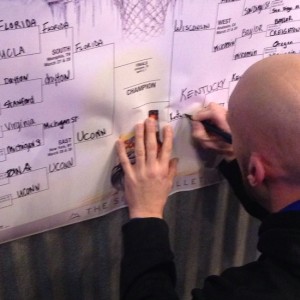For a few laughs on this official day of mourning in Big Blue Nation, be sure to check out my tweet recaps from the tourney games: Connecticut, Wisconsin, Michigan, Louisville.
An unwelcome and unfamiliar deep blue fog envelops the Bluegrass State this morning. In grocery stores and city parks and shopping malls, neighbors who months before felt nothing in common are now greeting each other with sad, knowing nods, exhausted shrugs, and wane, funereal “just wait ’til next year” salutations.
For after one of the most thrilling three weeks of cardiac-inducing, last-second-thrilling, and yes, community-building hardcourt theatre, the University of Kentucky Wildcats’ unexpected NCAA basketball tournament run came to a sudden and heartbreaking end at the hands of the newly-crowned national champion UConn Huskies.
And yet, while the Big Blue Nation mourns, much of the nation’s chattering class is leaping in giddy celebration. Kentucky basketball embodies to them everything that is wrong with the game, indeed with college sport as a whole. The focus of special ire is head coach John Calipari, for his diabolical exploitation of the NBA’s controversial “one and done” rule that permits pro teams to draft 19 year olds who are at least a year out of high school. As the Cats’ NBA-focused, all-freshman starting squad marches through March Madness — squashing upperclassmen-dominated rivals like Wisconsin, Michigan, and previously-undefeated underdog Wichita State — the righteous guardians of the Athenian ideal of amateur student athletics loudly decry the vulgar capitalist reality…in the form of a collection of mostly African-American teenagers representing one of the nation’s poorest states.
No doubt, many gripes with college hoops are quite legitimate. From its economic exploitation of teenage athletes, to the shady shoe contracts secured by its plutocratic coaches, to the blatantly unfair and hypocritical NCAA governance regime — big-time, big-money college roundball leaves many the casual fan with a guilty hangover after the last shimmy of the Big Dance in April. There also lies another, more intimate truth: Since middle school, much of my kind — the jump shot-challenged intelligentsia, that is — have scoffed at the popularity, coddling, and public financing of the jock culture. College is our sacred realm — for academics, scholarship and research, not professional sports-grooming.
But in rooting against the team that has mastered the flawed system, the critics are missing a greater truth: The keys to fixing the sport’s soul can be found precisely in the qualities that make Kentucky basketball so special. For while cerebral baseball and primal football continue to be heralded as our national pastimes; college basketball, particularly here in the heartland, really does matter.
At its core, basketball is the most populist and egalitarian of major sports. Its character derives in part from its tiny barriers to entry—all you need is a ball and a hoop to practice alone, and a bona fide game can be played with just a pal or a small group of friends. While its complex choreography and mosaic interpersonal psychodynamics are often underestimated, basketball is the simplest game to understand and appreciate. Ball goes into basket; your team scores. A contest’s time is precise and limited; its court dimensions, clear and uniform: As Gene Hackman famously proved in Hoosiers, the rim is always exactly ten feet from the ground whether at an urban playground or in a professional arena.
Basketball is also the ultimate spectator sport. Unlike radio-friendly baseball or HDTV-enhanced football, hoops are best enjoyed in person. With much, much less downtime than the Big Two, basketball games are filled with relentless exhibitions of artistry in action—colorful feats of intensely-rehearsed talent and gravity-defying acrobatics, while the participants remain in near constant motion. Because the vertical plane is regularly pierced, only basketball can provide those rare, sublime moments of transcendental grace. The courtside crowd isn’t distracted by the weather, organ player, food, bands, or tailgating: Until the final buzzer sounds, the game itself is the only thing that matters.
Whether in a high school gym or a professional arena, the game is played indoors, the fans on top of the action, literally involved in the hum and flow of the game, the most intimate among the major sports. In a game in which improvised and instinctual play is the norm, where fatigue and self-confidence are critical to performance, an enlivened and vocal crowd can provide enormous emotional and psychological comfort to the home squad, or can harass and dispirit the visitors. A home crowd—particularly at the college or high school level—becomes, for a few hours at least, a cohesive, interdependent community: Fans who might disagree sharply on matters of politics, religion, lifestyle, or just about any topic, join voices in passionate advocacy of their squad, or, almost as often, in intense criticism of the referees. It’s no coincidence that in many rural communities, most community-building events—graduation ceremonies, formal dances, citizen forums—take place in the high school gym.
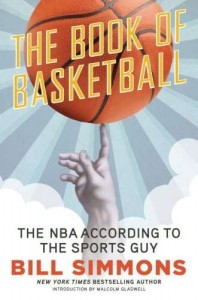 Indeed, a potent communitarian strand of populism—in contrast with the “me first” Tea Party variety—is modeled in the game itself. Bill Simmons’ bestseller, The Book of Basketball, reads in places like a Michael Sandel philosophy lecture or a 1968 Bobby Kennedy campaign speech: “The secret of basketball is that it’s not about basketball…Teams only win titles when their best players forget about statistics, sublimate their own games for the greater good and put their egos on hold.” And the greatest of the greats — Jordan, Magic, Bird — only earned their iconic status after they learned to surrender their own self-interest (high scoring averages) for the common good (winning championships), a noteworthy lesson in unselfishness and the Golden Rule for the boys, girls, and grownups who consider these hardwood heroes role models.
Indeed, a potent communitarian strand of populism—in contrast with the “me first” Tea Party variety—is modeled in the game itself. Bill Simmons’ bestseller, The Book of Basketball, reads in places like a Michael Sandel philosophy lecture or a 1968 Bobby Kennedy campaign speech: “The secret of basketball is that it’s not about basketball…Teams only win titles when their best players forget about statistics, sublimate their own games for the greater good and put their egos on hold.” And the greatest of the greats — Jordan, Magic, Bird — only earned their iconic status after they learned to surrender their own self-interest (high scoring averages) for the common good (winning championships), a noteworthy lesson in unselfishness and the Golden Rule for the boys, girls, and grownups who consider these hardwood heroes role models.
There’s been no better example of this phenomenon than this year’s Kentucky Wildcat squad. Heralded last year as the best recruiting class in the history of college basketball, the freshmen-dominated Wildcat team suffered through a disappointing regular season — falling from number one in the preseason polls to out of the top 25 by season’s end. Undeniably, these teenage phenoms were extraordinarily talented individual ballers, but they simply weren’t gelling as a cohesive unit. It wasn’t until postseason that they learned to overcome their stereotypically-Millenneal narcissism and played selfless ball. And as a result, they emerged as one of the most beloved teams in the long, long lore of the blue and white tradition.
It’s no wonder then why college hoops have made such a remarkable and substantive impact on education at the University of Kentucky. The administration understands that many Kentucky families — especially those in the most remote, economically-depressed areas of the state — dream of sending their kids to UK, and it has leveraged roundball prowess to help market and fund all of its major academic initiatives and capital campaigns, including its ambitious long-term effort to transform the school into a Top 20 public research university. And while it’s an unusual, although not a unique, collegiate example, UK basketball not only sustains itself financially; but along with football, its profits help enable the athletic department — with 20 other sports teams–to pay for itself, plus provide millions of dollars to the school for non-athletic scholarships
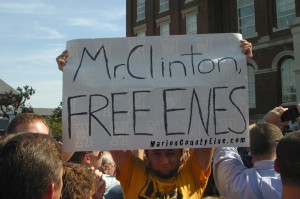 There’s also been perhaps no force more powerful for religious and racial fence-mending, at least here in the South. A few years ago, the hoops-mad University of Kentucky’s cause celebre was Enes Kanter, a recruit who was blocked permanently from college ball by the NCAA, citing his acceptance of payment in a professional league in his home country of Turkey. A “Free Enes” campaign grew organically from the grassroots, uniting the overwhelmingly Christian state behind a Muslim — not mind you, a more familiar American convert such as Louisville’s Cassius Clay/Muhammad Ali, but an honest-to-goodness, olive-skinned, Middle-Eastern Muslim. Imagine the impact Kanter could have made on religious tolerance had he been allowed to play and lead the Wildcats to another national title.
There’s also been perhaps no force more powerful for religious and racial fence-mending, at least here in the South. A few years ago, the hoops-mad University of Kentucky’s cause celebre was Enes Kanter, a recruit who was blocked permanently from college ball by the NCAA, citing his acceptance of payment in a professional league in his home country of Turkey. A “Free Enes” campaign grew organically from the grassroots, uniting the overwhelmingly Christian state behind a Muslim — not mind you, a more familiar American convert such as Louisville’s Cassius Clay/Muhammad Ali, but an honest-to-goodness, olive-skinned, Middle-Eastern Muslim. Imagine the impact Kanter could have made on religious tolerance had he been allowed to play and lead the Wildcats to another national title.
Perhaps more poignantly, just a half century since UK’s all-white “Rupp’s Runts” lost the national championship to Texas Western’s history-making all-black starting lineup — the whitest of all southern states has fallen in love with a series of mostly “one and done” teams composed almost entirely of African-American teenagers, and reveled in their soul swagger and hip-hop sentimentality.
From this egalitarian spirit comes the reform necessary to rebuild the sport’s integrity. Most legitimate complaints about the sport revolve around the same principle that animates our current national debate about income inequality: The 1% (NCAA, elite coaches, broadcast networks, and advertisers) are acquiring obscene wealth at the expense of the 99% (the student athletes) who don’t earn a dime. Even under the NCAA’s rosiest recent projections, more than a third of college basketball players, the vast majority of whom will never gasp a whiff of professional riches, don’t graduate, and many that do fail to develop any meaningful job skills, or even middle school level reading skills.
If we can simply apply a dash of the same communitarian principles found in the sport itself to the policy deliberations of the sport’s governing bodies, we can enhance the people’s sport by ensuring that we provide sufficient economic opportunity to the young men who bring the rest of us such enjoyment.
One core flaw is the ludicrous and pernicious assumption that every “scholar-athlete” has the preparation, the aptitude — or even the need — to earn a four-year, liberal arts bachelor’s degree. For decades, outside of sport, policymakers have been encouraging youth from lower income environments and underachieving high schools (a common background for many a collegiate hoopster) to enroll in two-year vocational and technical colleges, where they can be empowered with the skills they need for the 21st century job market. That’s why it is incumbent on the NCAA and its member schools to direct athletes, when appropriate, to focus their academic attention on job skill and technical programs that interest them, prepare them for postgraduate life, and enable them to earn associates degrees at the university, or through an affiliated community college or vo-tech program. Similarly, while the vociferous criticism of “one and done” is overblown (It worked well for Bill Gates after all), the NBA and its players’ union should effectuate a new “two and done” system, which will enable each player to earn sufficient credit to graduate with at least an associates’ degree.
(Photo by Jeff Gross/Getty Images)
Further, while full compensation of athletes is both unmanageable and fiscally infeasible among already-financially strapped institutions, I suggest that athletes be paid an hourly living wage—the same for each player on scholarship; adjusted slightly among universities by local standards of living—that would provide athletes with some (but not too much) walking around money for the occasional restaurant jaunt or shopping spree (maybe they could finally afford their own replica jersey at the campus book store), as well as the exceptional luxury of flying their parents in for special games. Let some of the funding come from the schools’ much-criticized shoe contracts so that players don’t continue to serve as unpaid jumping billboards for their product.
March Madness is an opportunity for college basketball to hold a mirror to itself, and apply what is so right about the sport to fix what is so wrong about the institution. By working towards a system that reflects the same principles that are taught on the court and imitated by the fan base — equality, selflessness, and community — college basketball can truly take its rightful position as an American pasttime that truly reflects American values. And the talented band of teenagers that led Kentucky to the precipice of its ninth national championship can be held up as role models for the nation.





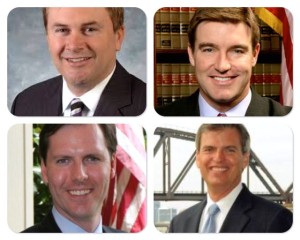
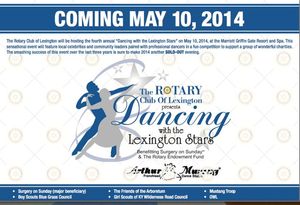 I never thought I’d say this again, but…
I never thought I’d say this again, but…

